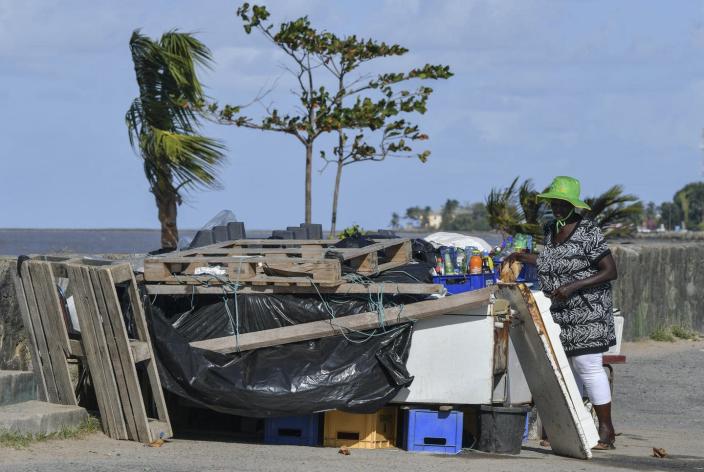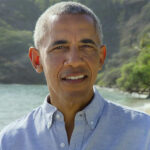As the U.S. and Europe cut back purchases of Russian oil, and energy traders shun it for fear of sanctions, the search is on for other sources. Attention has focused on Iran and Venezuela, both of which are led by governments that the U.S. sought until recently to isolate. But emerging and less-developed producers could also play roles.
Among the world’s many oil-producing countries, a few are positioned to jump the list and become increasingly active. They include the West African nation of Ghana (No. 33), along with Guyana (No. 42) and Suriname (No. 69), two small adjoining countries on the north Atlantic coast of South America. All three nations have become oil producers within the past 12 years, working with large companies like ExxonMobil, Tullow Ltd, Chevron, Apache, Total and Royal Dutch Shell.
I study factors that influence levels of democracy and social justice within nations, especially as they relate to natural resources and economic structures. As I see it, these newer producers are in a unique position compared to other oil-exporting nations, such as Nigeria and Ecuador.
In too many cases, developing nations opening their economies to oil production have been expected to accept the terms companies demand, with little room for negotiation and continued exploitation of host communities. In contrast, Guyana, Suriname and Ghana are better situated to obtain favorable terms.
[embedded content]
Striking better deals
As world markets grapple with the current oil price shock, niche producers are in especially favorable positions to secure advantageous contracts and more favorable terms from international energy companies. For example, oil companies typically pay host countries royalties on their revenues that average about 16%. To date, Guyana and Suriname have accepted fees of less than 6.5% in an effort to attract investors. Under current conditions, they may be able to ask for more during new contract negotiations.
Oil production started in Guyana in late 2019, and currently the country produces over 340,000 barrels per day. Guyana learned from its first block contract with ExxonMobil to demand more “local content” – a key condition in oil negotiations that refers to hiring local workers and using locally made goods and equipment. Natural resources minister Vickram Bharrat has called that agreement, made by a previous administration, “one of the worst ever between a government and an oil company,” and Guyanese officials say they will seek more-favorable terms in future agreements.
Suriname’s new offshore oil discoveries offer potential. Small operations are currently producing about 20,000 barrels per day, and major projects are expected to start by 2025.
Suriname is demanding increased insurance from oil companies in the event of an oil spill, along with prepared emergency cleanup procedures. These processes are continually reviewed and criticized, keeping companies on their toes.
Ghana started oil development in 2007 and now produces about 163,000 barrels per day. However, ExxonMobil pulled out of the country in 2021, reportedly to focus on higher-value projects elsewhere, and depressed demand during the COVID-19 pandemic cut into Ghana’s oil exports.
Now, Ghana’s national oil company, Ghana National Petroleum Corp., is taking a larger role, buying shares in oil fields from companies like Occidental Petroleum. Greater state involvement is raising uncertainty about how much access Ghana will offer to foreign oil companies. Some, including Tullow Oil and Aker Energy, are producing there now, but Tullow’s shares have plummeted in recent years, and there has been speculation that it may leave Ghana.
Managing oil income
Nations and states that produce oil or other natural resources often put their royalties into sovereign wealth funds instead of simply adding them to general treasury funds. A sovereign wealth fund is essentially a rainy day pot that the government can use in times of economic stress to continue funding major priorities, such as infrastructure projects and social programs.
Some of these funds, notably in Norway and Alaska, have produced significant benefits for residents. However, some experts argue that they aren’t necessarily well suited for developing nations.
According to this view, the success of these funds depends on many hard-to-control variables, such as whether the country has a diversified economy, its level of corruption and global events like commodity price collapses. And managing the funds requires significant technical skills.
Ghana created an Oil Heritage Fund in 2011, and Guyana and Suriname are in the process of doing so. All three may need assistance to manage these funds effectively and maximize benefits for their citizens.
Transparency and peer support
Recognizing that it can be challenging for developing countries to negotiate with major corporate investors, a number of nongovernmental organizations have become active in this sector. One that’s particularly relevant to oil production is the Extractive Industries Transparency Initiative, which seeks to publicize information about extraction practices, contracts, taxing and spending processes, and more. This benefits the public by tracking where revenue goes and promoting accountability.
The New Producers Group works to help countries manage resources effectively through peer-to-peer relationships and knowledge exchange. Emerging producers can learn from other nations’ experiences and collaborate with other governments on issues that affect them all. For example, the organization has held several events recently, analyzing what the global transition away from fossil fuels means for emerging oil producers, and how these countries can manage the transition while working to end poverty.
As members of both organizations, Ghana, Guyana and Suriname have access to tools that many early producers did not. All three countries have participated in multilateral meetings and exchanges with peers and shared information with local citizens.
Keeping the public informed helps to hold government officials and corporations accountable and promotes public involvement. Citizens and civil society watchdogs criticized ExxonMobil’s first contract in Guyana for not including citizen feedback and being created behind closed doors.
Public involvement and transparency also reduce the potential for corruption, a common problem in resource-rich nations. Transparency International’s Corruption Perceptions Index measures perceived levels of public sector corruption in nations worldwide. On a scale with 100 as the worst score, Guyana and Suriname scored 39 and Ghana scored 43, so all three states have significant room for improvement.
As the world slowly transitions away from fossil fuels, emerging producers are acutely aware of the need to seize the moment for development’s sake, but also seek to meet climate change pledges. Guyana and Suriname may have an asset in the fight against climate change: dense forests that can absorb large quantities of carbon, helping to offset emissions.
[Over 150,000 readers rely on The Conversation’s newsletters to understand the world. Sign up today.]
Guyana has unveiled a Low Carbon Development Strategy for 2030 and has partnered with Norway to generate carbon credits for protecting its forests. I see partnerships like these as ways to advance environmental goals alongside the social and economic development that these nations desperately need.
This article is republished from The Conversation, a nonprofit news site dedicated to sharing ideas from academic experts. It was written by: Jennapher Lunde Seefeldt, Augustana University.
Read more:
Jennapher Lunde Seefeldt is affiliated with American Political Science Association.





